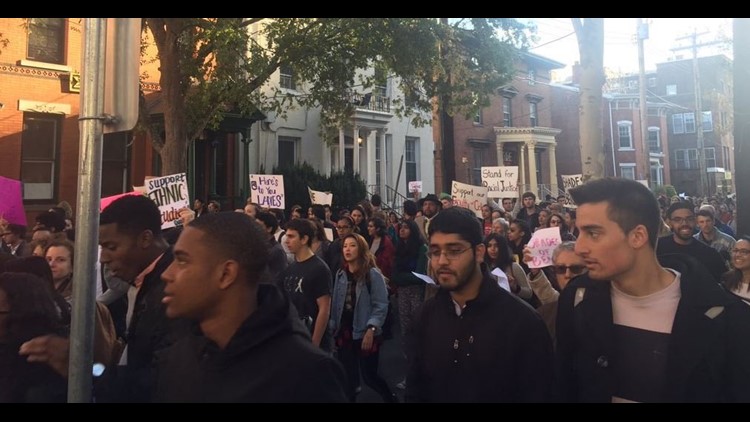NEW HAVEN — A video that was meant to be a satirical take on a recent debate on college campuses took a different turn.
Over the past few months, college students have been debating whether unconditional free speech has a place on campuses, or if it’s important to not say things that discriminate against race, ethnicity, gender and other social identities.
Political commentator and satirist Ami Horowitz is best known for his film “U.N. Me,” which exposed “the incompetence and corruption at the heart of the United Nations,” according to the film’s website. The film also “exposes how an organization created to ennoble mankind actually enables chaos and global discord.”
He also makes videos for a series called “Ami on the Street,” which airs at times on Fox News.
His latest political commentary, called “Ami on the Street: Do we really need the 1st Amendment?” shows Ami asking students on the Yale campus if they think the First Amendment is still necessary in today’s world.
Many of the students whose responses were cherry-picked think freedom of speech should be repealed, and they even sign a petition that they believe will make that happen. Some are more enthusiastic about the issue than others.
Yale has been in the news quite a bit lately after thousands of students took to the streets for a “March of Resilience” in November. The march was organized after students spoke up about their displeasure with how the administration was handling racial incidents that occurred.
One notable incident was that a group of girls was denied access to a fraternity party when the person at the door said it was a “white girls only” party. A second involved two professors, a husband and wife, who sent out an email denouncing a letter sent to students that they should be sensitive to others when choosing a Halloween costume. Erika and Nicholas Christakis are now on sabbatical after deciding that Yale is not “conducive to the civil dialogue and open inquiry required to solve our urgent societal problems.”
In response to the demands by students to improve the campus environment’s race culture, Yale President Peter Salovey said the school will open a center focused on race, ethnicity and other aspects of social identity.



